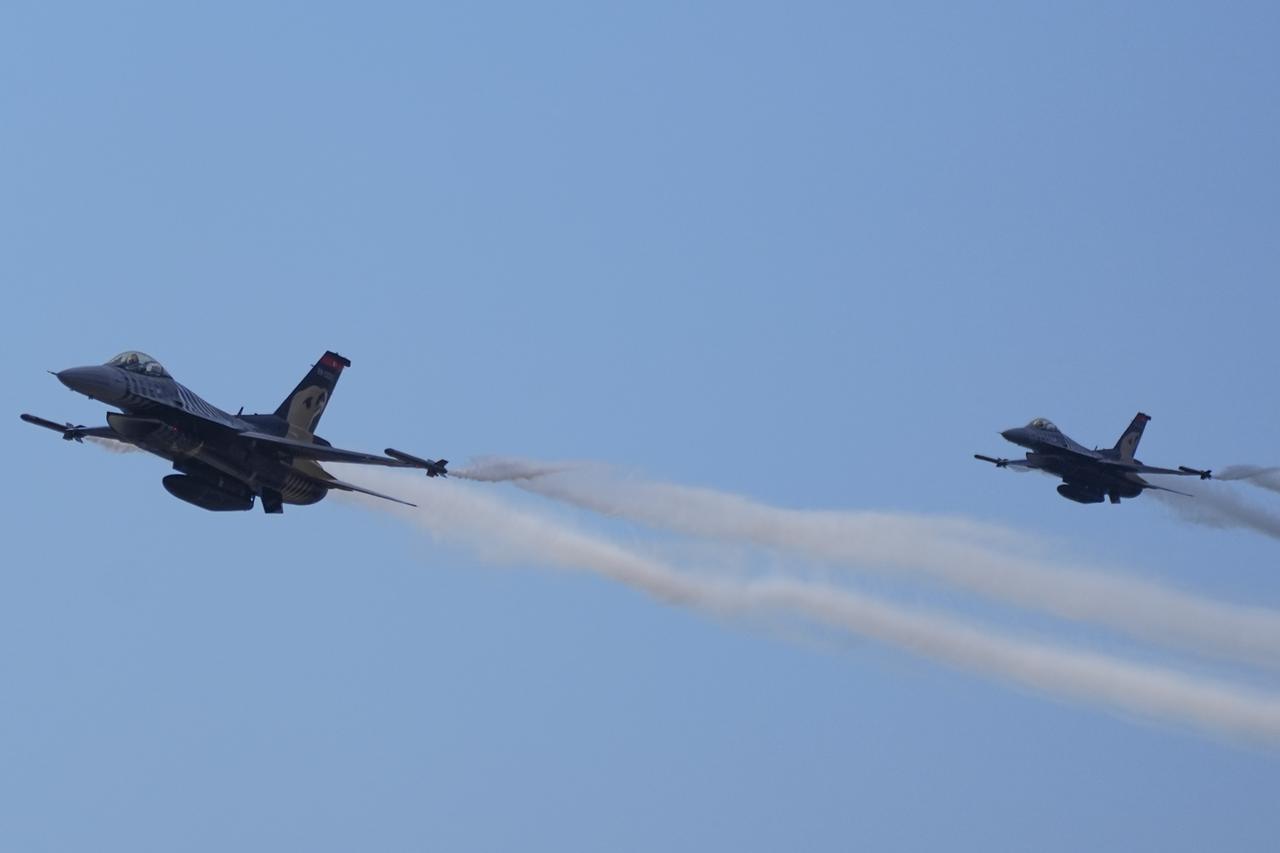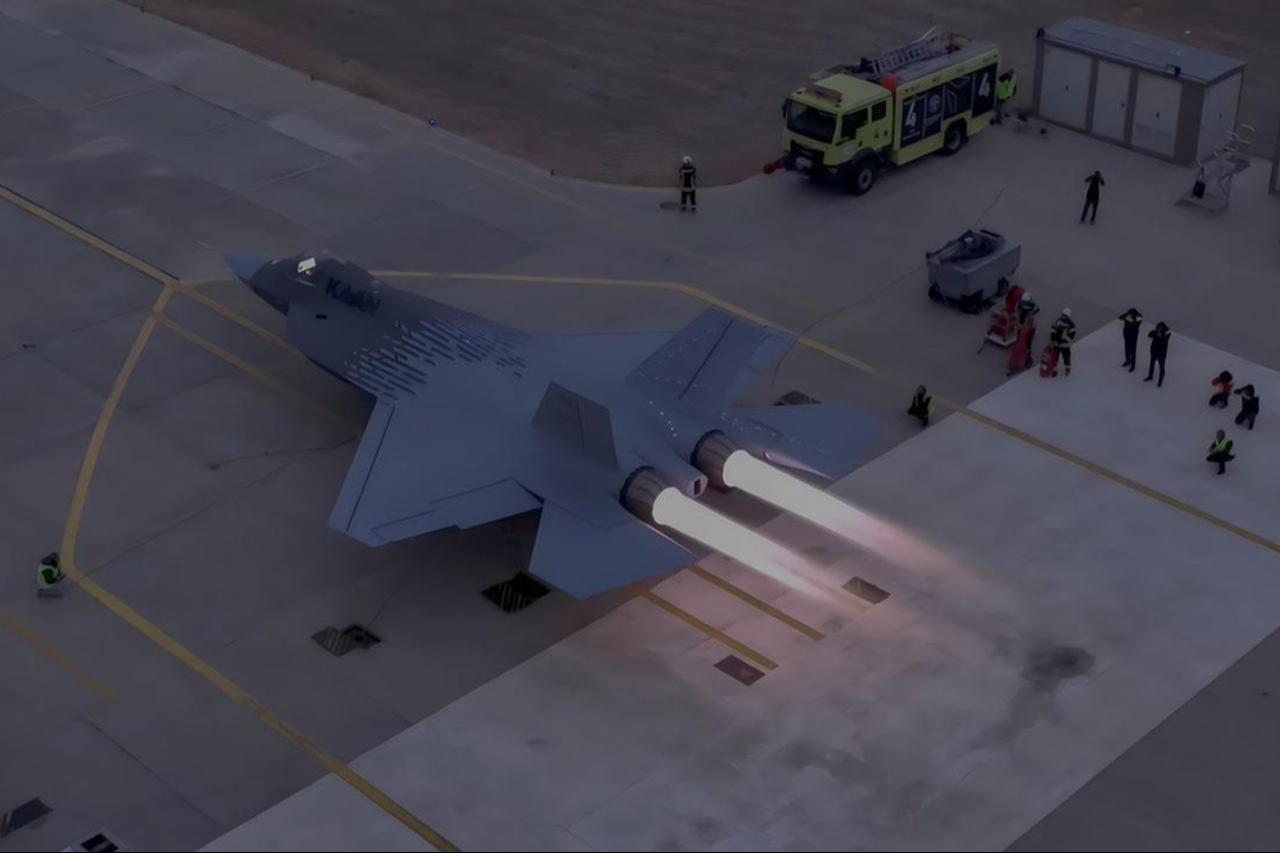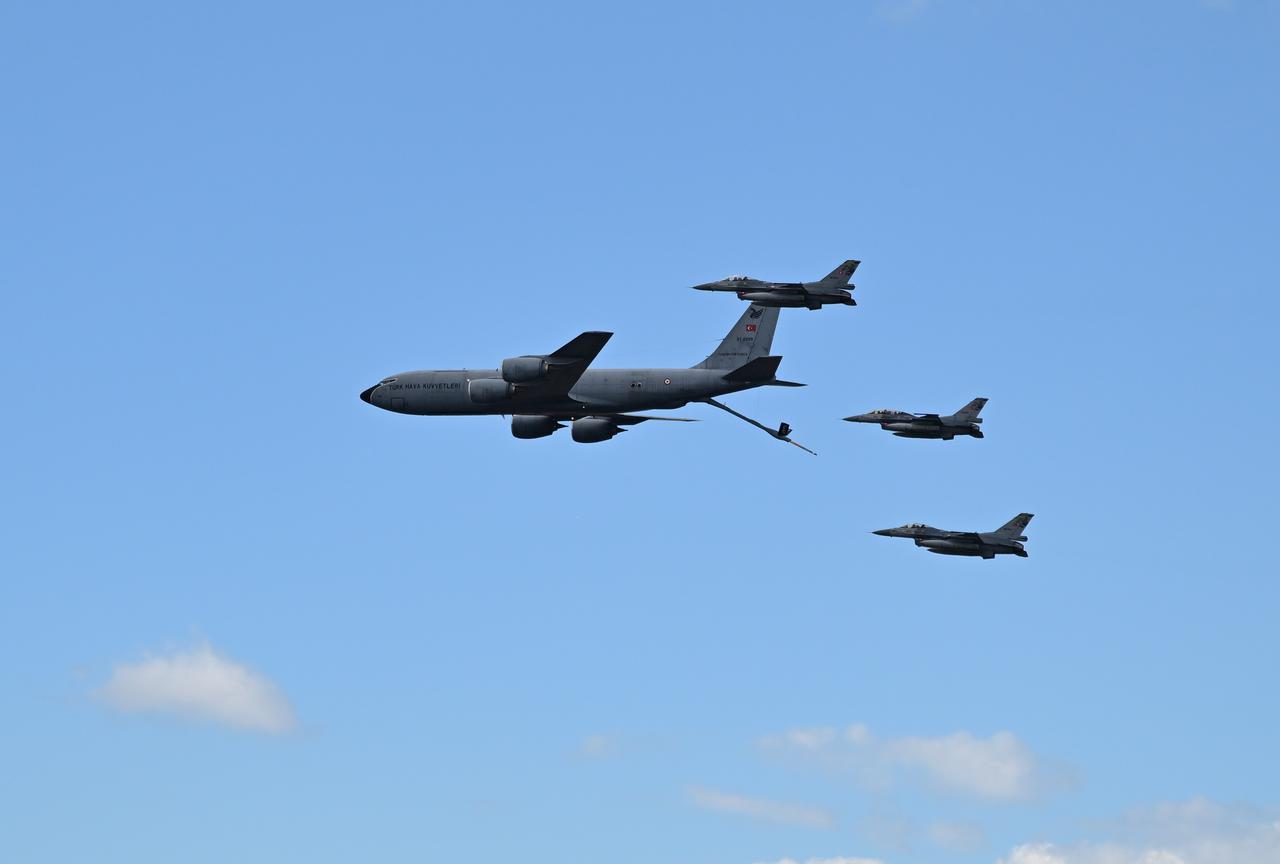
Türkiye is considering modifying its multibillion-dollar U.S. arms deal to acquire jet engines instead of F-16 warplanes and missiles, aiming to accelerate development of its fifth-generation Kaan fighter jet, sources familiar with the matter told Middle East Eye (MEE) on Wednesday.
The potential shift comes as President Recep Tayyip Erdogan prepares for a Thursday meeting with U.S. President Donald Trump at the White House, where the issue is expected to be discussed.
Ankara previously reduced its F-16 procurement plan in 2024, opting out of 79 modernization kits and committing instead to purchase 40 F-16 Vipers with associated ammunition, cutting the deal's value from $23 billion to $7 billion.
Defense Minister Yasar Guler confirmed last November that Türkiye has already made a $1.4 billion down payment toward the F-16s.
However, Turkish defense leadership remains divided over how best to replace the country's aging fighter fleet following its 2019 exclusion from the F-35 program after acquiring Russian S-400 air defense systems.
"Instead of spending billions on F-16s, some in Ankara argue that the funds could be redirected to purchase F-16 engines, which are compatible with the Kaan," one source familiar with the debate said.
The first Kaan aircraft will utilize General Electric's F110 engines, the same model that powers F-16s, although Türkiye plans to develop a domestic engine for deliveries in the 2030s.
A Turkish consortium aims to deliver the first Kaan jets by late 2028; however, many analysts expect deliveries to be closer to 2030.

Some Turkish officials worry about restrictions that could accompany U.S.-supplied F-16s, as Washington might bar Ankara from integrating domestically produced payloads.
Türkiye has developed indigenous weapon systems in recent years, including cruise missiles and guided munitions compatible with fighter jets.
While the Turkish air force has expressed willingness to procure any available aircraft — F-16s, Eurofighters or F-35s — Türkiye's top defense procurement body and key domestic producers maintain that Ankara should be more selective.
Some senior officials are pushing to scrap the planned F-16 purchase entirely, prioritizing investment in the domestically produced Kaan while preparing for a possible return to the F-35 program.
Six F-35s originally built for Türkiye remain in storage and could be transferred quickly if Ankara is readmitted to the program. Guler has stated that Türkiye ultimately aims to acquire 40 F-35s.

A Washington-based source told MEE that the Pentagon has insisted it will not reopen F-35 discussions until the F-16 agreement is finalized.
The source speaking to MEE said it was unlikely the U.S. would accept selling jet engines instead of F-16s, as it was a sealed deal.
Türkiye's shifting demands for amendments to the F-16 deal have raised concerns within the U.S. administration.
Ankara's potential return to the F-35 program carries strategic significance in the eastern Mediterranean, where Greece is set to receive its first F-35s in 2028, while Türkiye's F-16 fleet continues to age.
Regional actors, including Israel and Greece, are lobbying Washington to block the sale. Israel has long maintained a de facto veto over U.S. arms sales to Middle Eastern countries to preserve its qualitative military edge.